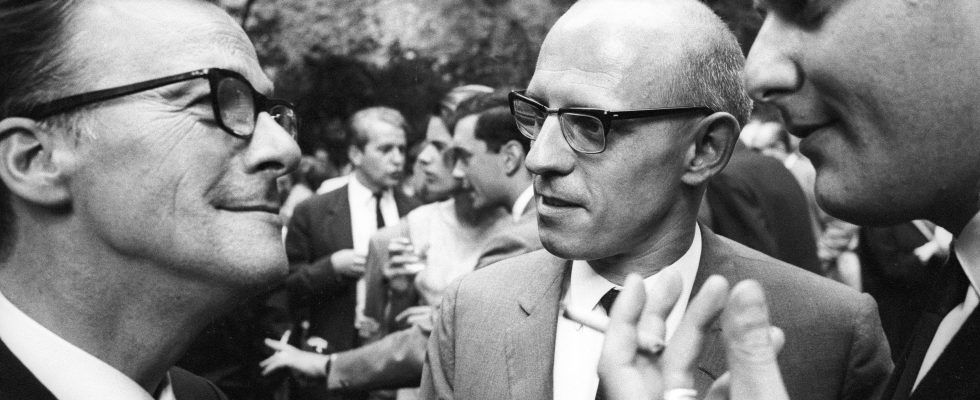One editor can hide another. We only have this word to designate the boss and sometimes owner of a publishing house as well as its literary director, more directly involved with the authors in the work on the manuscripts. In the Anglo-Saxon world, we distinguish the publisher of the editor. Two statuses and two responsibilities without common measure. In small houses, it combines both. What do we call it back home? We don’t call him. That is to say if he is discreet, even secret. Blame it on Jean Paulhan who, having embodied him for decades, made his peers invisible. It is therefore remarkable that one of them is the subject of a biography devoted to his work as a discoverer. The path continues (Gallimard) by Arnaud Villanova reveals the personality and work of Georges Lambrichs (1917-1992).
An authentic smuggler that Georges Lambrichs
A judgment was expected from him, sometimes pronounced in the form of a verdict. His pithy formulation gave him a reputation for being taciturn. Of the type to silence what goes without saying. When a text pleased him, he simply said: “It’s amazing.” And if not: “It’s not okay.” His reading sheet rarely exceeded three lines. He barely authorized himself: “It’s a bit long…” The novel, the short story, the poem, the essay in the making, he judged them not only at first glance but at the ear. The main merit of Arnaud Villanova’s book, originally a research dissertation, is to have drawn on the rich archives of Georges Lambrichs deposited at the Institut Mémoires de l’édition contemporaine (Imec) and to reveal to us content. Delectable!
A pipe behind a bow tie, a myopic gaze on the lookout for a tongue. An authentic smuggler than Georges Lambrichs. Editing is not just reading: it’s putting writers in the presence of each other around a table well stocked with food and bottles, in a restaurant or at home, so that their matchmaker gets drunk on their conversation. and quenches their thirst argument, so that a band, a nebula, a group springs from it. Above all, not a school, synonymous with discipline, nor an avant-garde, irretrievably destined for a rear-guard destiny, but a family of minds such as existed in the journals of yesteryear, laboratories of ideas of tomorrow. . A sadly bygone world.
After having worked at Minuit and Grasset, Lambrichs was from 1959 and until 1987 at Gallimard as much the man of the Le Chemin collection as that of the magazine The Notebooks of the Way. His contract signed by Gaston Gallimard is worth the detour: it is stipulated that he is hired as “literary director all hands, dealing with manuscripts without guidelines” and that he will have to devote to Gallimard editions “the best of his time”! This is tied up. Especially since he had the austere reputation of only publishing in experimental literature. After the publication by his care at Grasset of the Warrior’s Rest of Christiane Rochefort, big public success, the house of Proust had hastened to poach it.
His secret? A slow read
With Samuel Beckett, it was a silent colloquium. But what he said about it, he could say about others too: “I can’t find the solutions for him. On the other hand, I can give him confidence, encourage him, help him hold on.” A collection is someone behind to direct it and someone in front to embody it. Most often the same. The Way was Georges Lambrichs. Less a matter of flair than a vista unique. He knew how to spot. His secret? Reading but slow, slow… A luxury. He watched every day for the postman’s arrival because his greatest surprises came from manuscripts posted by strangers. One day, in the early 1960s, one of them, aged 22, shyly addressed his. “This is amazing…” The verbal procedure, was crowned with the Renaudot prize and will be followed by a dozen others from the same JMG Le Clézio. Its success, along with those of Jacques Borel and Pascal Lainé, winners of the Goncourt prize, sheltered the chronically deficient collection from sarcasm for a while.
He had in his hands the texts of Beckett, Butor, Klossowski, Mandiargues, Laclavetine, Guyotat, Beaussant, Bobin, Sarraute, Starobinski, Tardieu and so many others in such beautiful ink. The triumphant rebel had acquired an indisputable authority without it ever being known if he had really exercised the power attributed to him. An editor, what.
